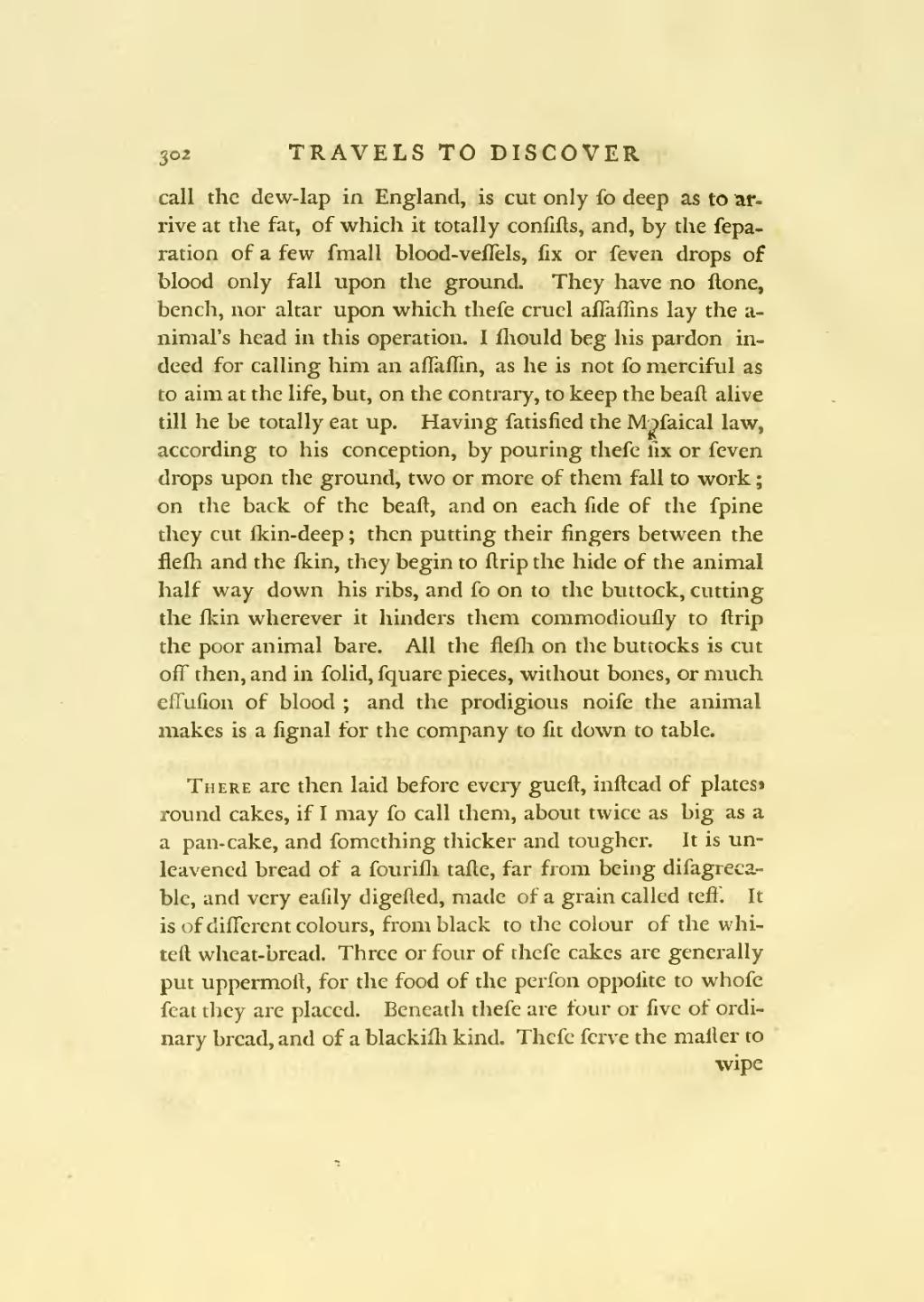call the dew-lap in England, is cut only so deep as to arrive at the fat, of which it totally consists, and, by the separation of a few small blood-vessels, six or seven drops of blood only fall upon the ground. They have no stone, bench, nor altar upon which these cruel assassins lay the animal's head in this operation. I should beg his pardon indeed for calling him an assassin, as he is not so merciful as to aim at the life, but, on the contrary, to keep the beast alive till he be totally eat up. Having satisfied the Mosaical law, according to his conception, by pouring these six or seven drops upon the ground, two or more of them fall to work; on the back of the beast, and on each side of the spine they cut skin-deep; then putting their fingers between the flesh and the skin, they begin to strip the hide of the animal half way down his ribs, and so on to the buttock, cutting the skin wherever it hinders them commodiously to strip the poor animal bare. All the flesh on the buttocks is cut off then, and in solid, square pieces, without bones, or much effusion of blood; and the prodigious noise the animal makes is a signal for the company to sit down to table.
There are then laid before every guest, instead of plates, round cakes, if I may so call them, about twice as big as a a pan-cake, and something thicker and tougher. It is unleavened bread of a sourish taste, far from being disagreeable, and very easily digested, made of a grain called teff. It is of different colours, from black to the colour of the whitest wheat-bread. Three or four of these cakes are generally put uppermost, for the food of the person opposite to whose seat they are placed. Beneath these are four or five of ordinary bread, and of a blackish kind. These serve the master towipe
